Peter Schweizer’s new bestseller Red-Handed: How American Elites Get Rich Helping China Win blows the whistle on a little game played by pro-Beijing politicians in Washington, a tactic summed up as “big help With a little badmouth.” The idea is to throw out a little tepid public criticism of China to maintain deniability while collaborating with the Chinese Communist Party (CCP) and its business interests behind the scenes.
“Beijing pragmatically accepts some level of public criticism from the elites with whom it is working,” Schweizer observes. “As long as these elites deliver on key policies and actions that benefit the regime, some criticism is acceptable.”
The modest toughening of President Joe Biden’s previously indulgent rhetoric toward China could be taken as an example of big help with a little badmouth, as Schweizer argues Biden’s introduction of a little tut-tutting on human rights does little to camouflage China policy that includes “no radical reduction in the transfer of technology or capital from America to Beijing” and “no fundamental challenges to the Chinese regime.”
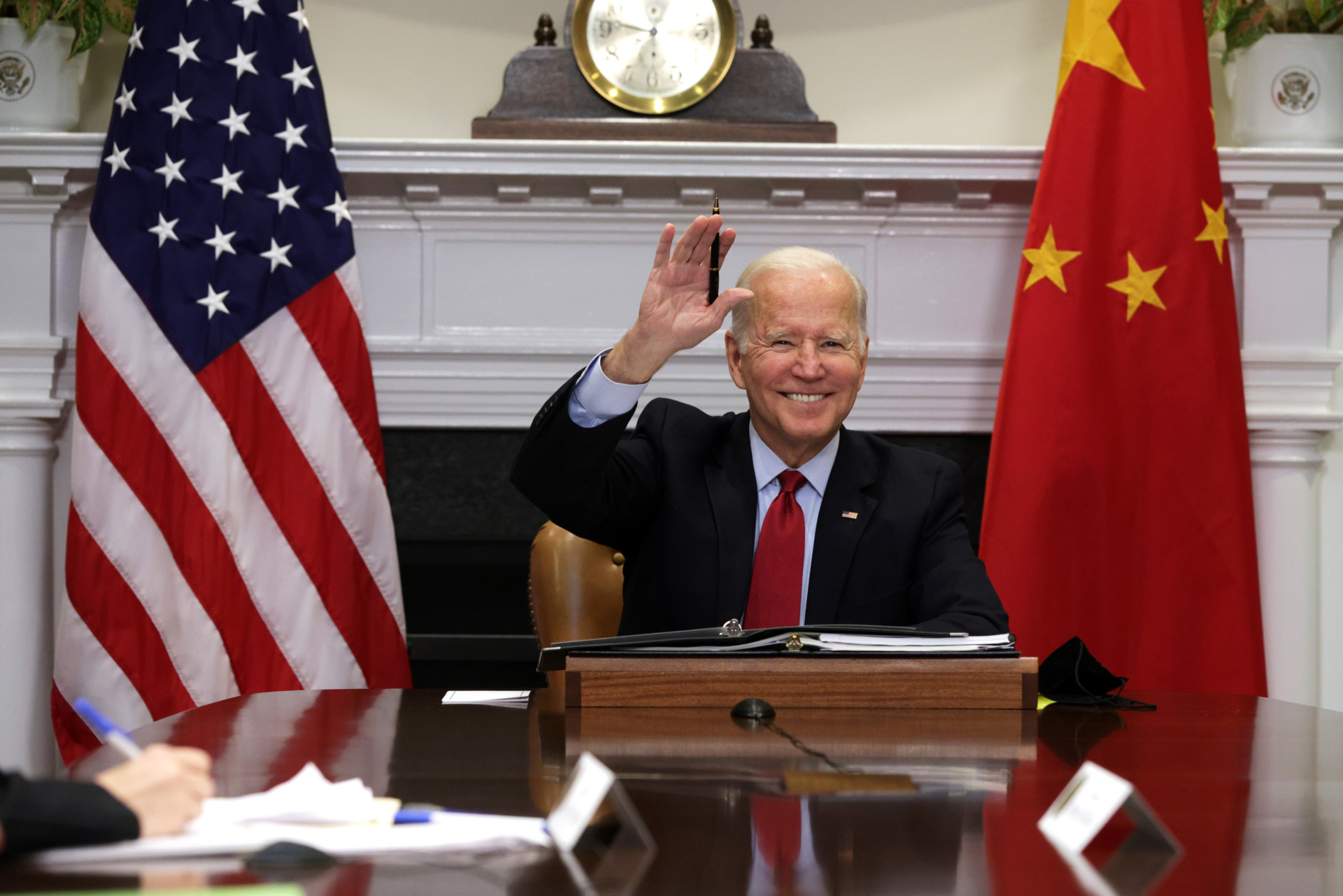
President Joe Biden waves as he participates in a virtual meeting with Chinese Communist Party leader Xi Jinping in the White House on November 15, 2021. (Alex Wong/Getty Images)
Even Biden’s human-rights criticism of China is usually laced with qualifications and excuses, as when the president suggested in a CNN interview that dictator Xi Jinping understandably values national unity so much that he might be forgiven for cracking a few skulls in Hong Kong or Xinjiang to get it.
Biden’s notion of a “diplomatic boycott” of the Beijing Winter Olympics to protest the genocide in Xinjiang could be counted as another example of little badmouthing, although it happened too late to be included in Red-Handed.
Unwilling to actually take a stand against allowing the monstrous Chinese government to host the Olympic Games, Biden came up with the idea of not sending any U.S. diplomats to attend the event as VIP guests — but then he ended up sending at least 46 officials to the Games anyway. This is a bit like declaring a “hunger strike” but then making exceptions for Twinkies and hamburgers.
China will get everything it wants out of the Genocide Games, and Biden’s “diplomatic boycott’ will not even be remembered as a footnote. Red-Handed offers many other examples of weak rhetorical objections to China for public consumption, while big money changes hands behind the scenes.
Plenty of the little badmouthing comes from Republicans, as seen in Schweizer’s detailed discussion of Sen. Mitch McConnell’s (R-KY) mixture of public objections to the actions of the Chinese government while his family maintains extensive private business ties with Chinese entities. Former House Speaker John Boehner (R-OH) is also criticized for taking “positions and actions that were highly beneficial to Beijing” while nominally criticizing the Chinese Communist Party.
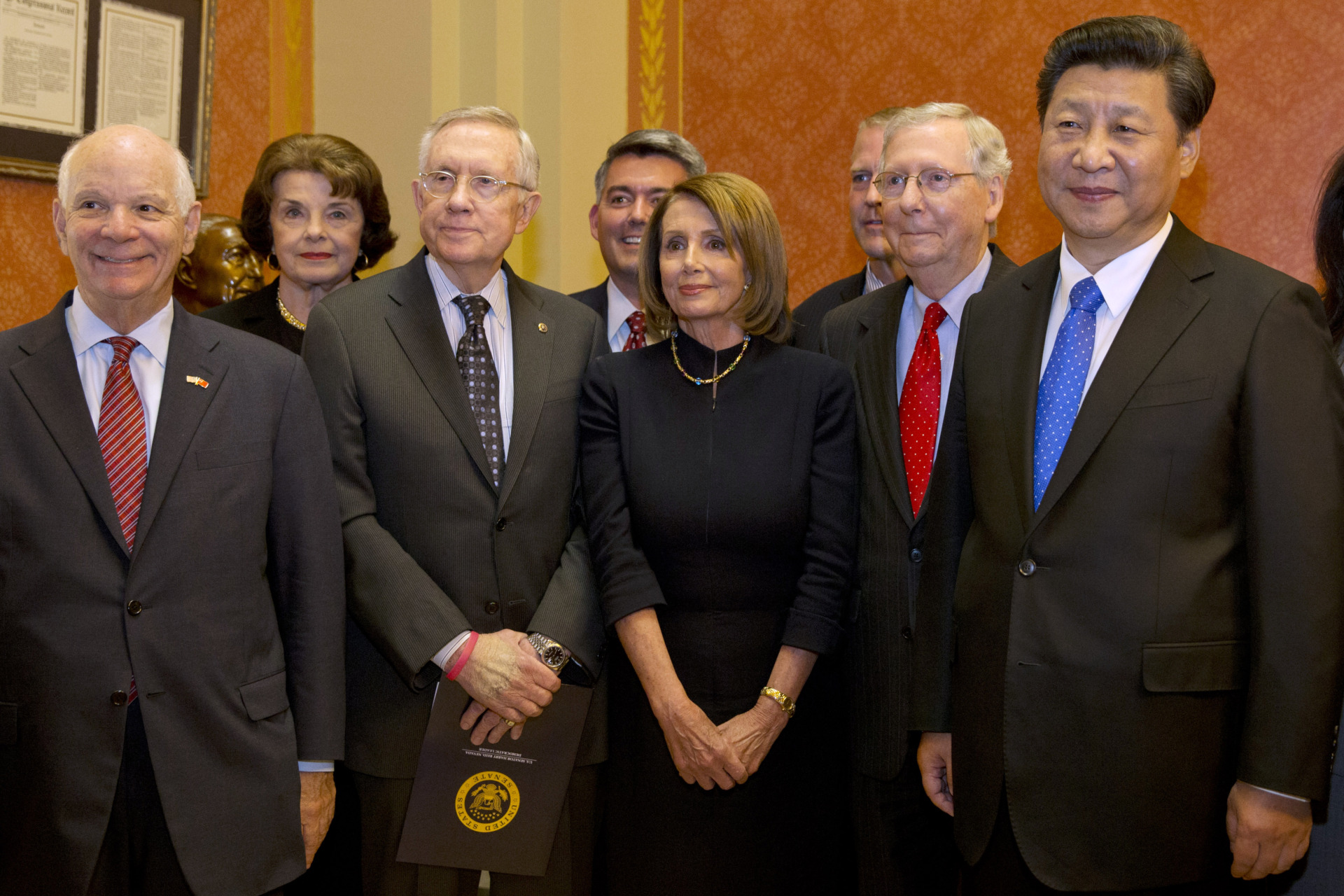
Chinese Communist Party leader Xi Jinping, far right, meets with Congressional leaders on Capitol Hill in Washington on September 25, 2015. From left: Sen. Benjamin Cardin (D-MD), Sen. Dianne Feinstein (D-CA), Senate Minority Leader Harry Reid (D-NV), Sen. Cory Gardner (R-CO), House Minority Leader Nancy Pelosi (D-CA), Sen. Dan Sullivan (R-AK), Senate Majority Leader Mitch McConnell (R-KY). (AP Photo/Jacquelyn Martin)
Schweizer notes the key to the “big help with a little badmouth” paradigm is that America’s business leaders and foreign policy establishment value “engagement” with China above all else.
It is difficult to believe anyone in the upper ranks of American business or politics could still believe that China will be “liberalized” by trade and cultural contact — the reverse is true, as America grows steadily more authoritarian — but the fear supposedly haunting the agency conference rooms and policy workshops of Washington is that pushing thin-skinned China too hard will ruin our chances to “engage” with its institutions, cutting off whatever influence we allegedly have upon the Chinese people.
Whether it is a sincere belief or a self-serving fiction, the need to preserve economic and diplomatic “engagement” with China is constantly cited as the reason “little badmouth” is never escalated until it might interfere with “big help.”
Schweizer traces the genesis of this mindset to none other than Henry Kissinger, architect of the Nixon administration’s “opening to China” in the Seventies and still influential in his late nineties. Kissinger’s ideas opened a door that amoral globalist Big Business interests were happy to click in.
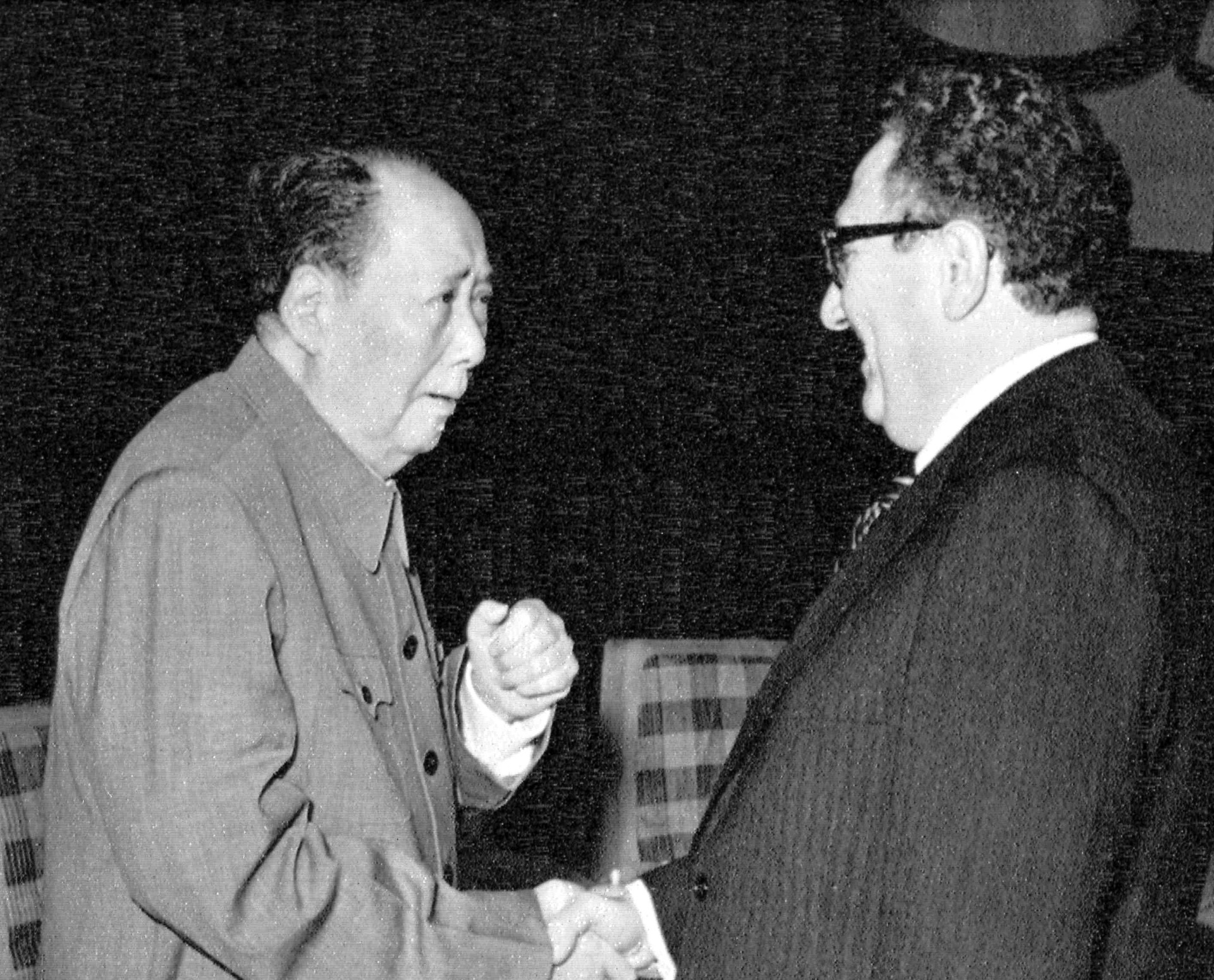
Chinese Communist Party Chairman Mao Zedong greets Secretary of State Henry Kissinger in Beijing on October 21, 1975. (AP Photo)
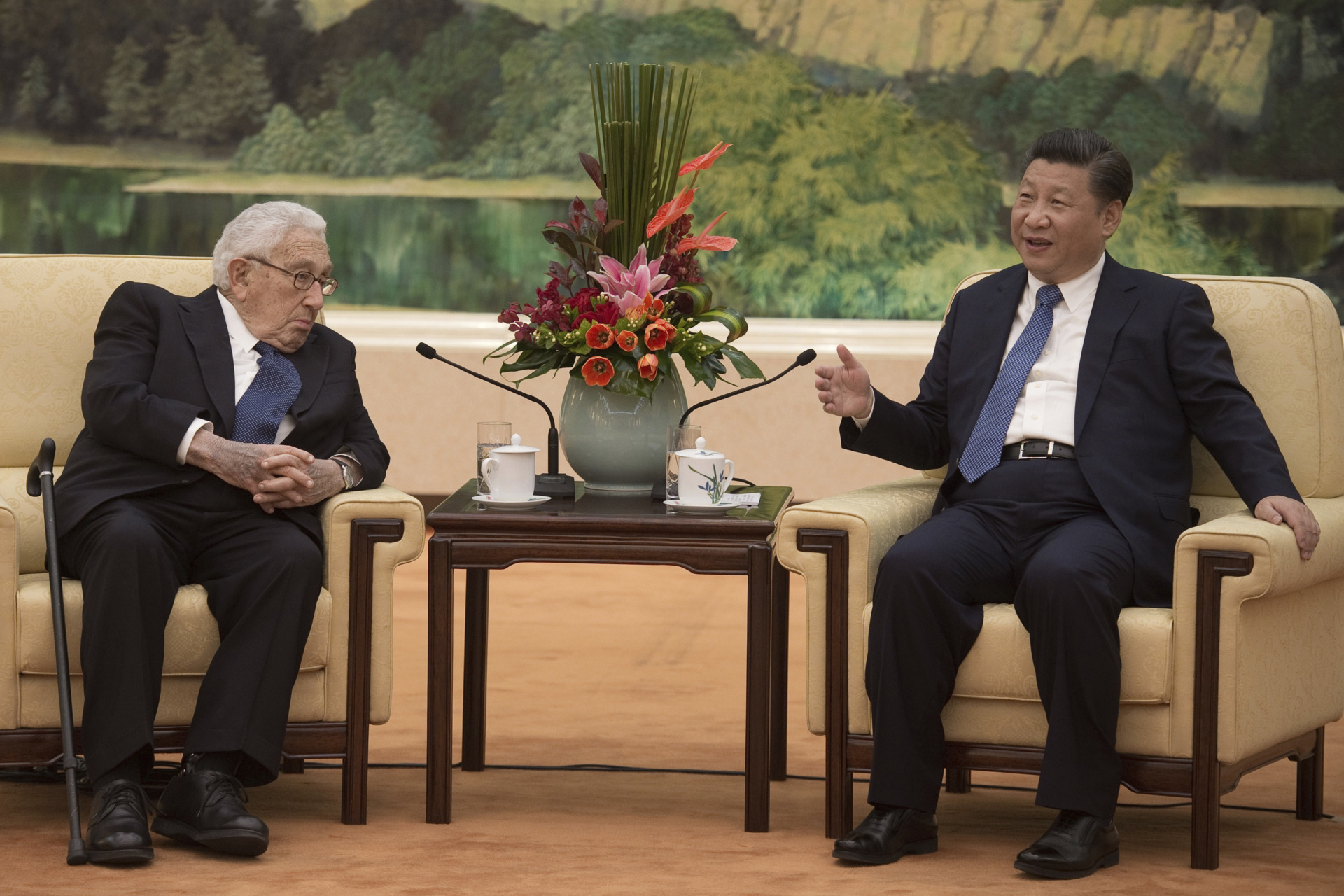
Former Secretary of State Henry Kissinger meets China’s Communist Party leader Xi Jinping in Beijing on December 2, 2016. (Nicolas Asfouri/AP Photo)
Red-Handed is deeply skeptical that globalist tycoons ever truly believed, or really even cared, that “engagement” could liberalize Chinese Communism and bring it down like the Soviet Union. They didn’t even flinch when China began using economic engagement as one-way turbocharged vacuum cleaner to hoover up American capital and intellectual property. As long as there was money to be made today, concerns about what the Chinese Communist Party might do with stolen U.S. technology tomorrow were muted.
Perhaps the godfathers of “big help with a little badmouth” tactics had a sincere but grossly exaggerated belief in the power of their rhetoric to bring change to China. Perhaps they were besotted with the Nineties mythology of the Soviet Union collapsing like a house of cards after Russian consumers got a taste of Western prosperity. Maybe they believed they were dealing with amoral globalist businessmen like themselves in Beijing who just enjoyed a bit of light Communist Party role-playing in their spare time. The U.S. foreign policy establishment might have thought Beijing would change its ways to win the approval of the “international community” it aspired to join in a leadership role.
Whatever was passing through the minds of the little badmouths over the years, it is crystal clear today that China’s rulers care very little about rhetoric or political posturing. They have used the very wealth and leverage they gained from all that big help to create a new world order in which merely talking about their worst atrocities counts for nothing.
Complain that China is oppressing a Muslim minority in Xinjiang, and the CCP will whip out a list of dozens of Islamic nations on its Belt and Road payroll who have no objections whatsoever to herding Muslims into re-education camps where they learn to worship Xi Jinping instead of Allah. Criticize the Chinese police state, and the CCP will respond by talking about Black Lives Matter riots and George Floyd.
What America does is far more important to Beijing than what it says, and Red-Handed makes a compelling case that Beijing is largely comfortable with what America’s political and business leaders are doing.
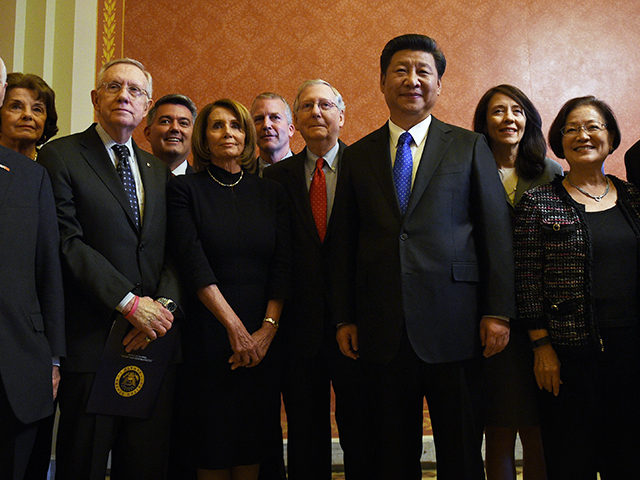
COMMENTS
Please let us know if you're having issues with commenting.